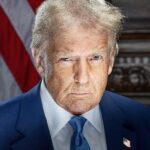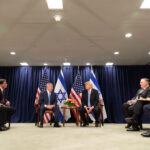WHAT IS THE NAME OF THE BOOK AND WHAT ARE ITS COORDINATES?
Peter S. Henne, Religious Appeals in Power Politics, Ithaca, NY: Cornell University Press, 2023
WHAT’S THE ARGUMENT?
Religious appeals—references to religious standards and symbols by states used to justify policies or critique rivals—are a potent but unwieldy tool in international power politics. States will often turn to religious appeals when forming international coalitions or trying to break apart rival coalitions. Unfortunately, they tend to be an unpredictable tool, often backfiring on the states using them and causing more problems than they solve.
States use religious appeals when there is a high domestic moral authority for religion and the state is dealing with an ideologically-charged international crisis. They are most likely to have an impact when the state using them is credible on religious issues and the target has an incentive to go along with the appeals. Most international crises involve intermediate combinations of these variables, however, leading to disruptive impacts from religious appeals.
This falls between two sides of the debate over whether religion can be a tool in foreign policy. Skeptics dismiss or ignore religion’s role, suggesting it may be useful in cultural exchanges but have little impact on high-stakes security issues. More triumphant voices argue that religion can or already has transformed international relations, with religion being as powerful an influence on state security policies as conventional concerns. Neither side is correct.
WHY SHOULD WE CARE?
Foreign policy makers, from former US Secretary of State Madeleine Albright to Yousef al Otaiba—the United Arab Emirates ambassador to America—have pointed to religion as a potential foreign policy tool. This isn’t just cheap talk; numerous states have invested real resources into religion-centered foreign policy programs. Understanding why they do this, and what the likely impact of these initiatives is, will therefore be of great value.
This question is made more pressing by the numerous examples of states successfully using religion as a tool in domestic politics. Examples range from George W. Bush’s evangelical Christian coalition to Middle Eastern leaders’ “identity protection rackets.” Figuring out whether religion has a similar efficacy in international relations can shed light on whether concerns and values driving domestic politics—such as religion—spill over into the international arena.
Finally, debate over religion and international security is stuck in a frustrating rut; religion is seen as either irrelevant or an overwhelmingly transformative force. This has made it hard to progress past initial findings of religion’s impact on interstate conflict and connect the study of religion and IR with mainstream security studies. My book helps to resolve this tension by pointing out religion’s intermediate and disruptive effects, as well as the conditions under which it has an impact. This promises to revitalize the study of religion and international relations by providing guidelines for future research.
WHY SHOULD WE BELIEVE YOUR ARGUMENT?
The book includes in-depth case studies of Saudi Arabia’s attempt to form a Islamic alliance in the 1960s, the United States’ religious engagement during the Global War on Terrorism, and Russia’s appeals to “traditional values” under Vladimir Putin.
Most of my work is quantitative. Even my first book centered on a quantitative analysis of an original dataset, with accompanying case studies. Despite my belief in the value of quant, I did not think it would work for this book. I’m developing a new theory here on the role of religious appeals. Moreover, the variables I point to are very context dependent, making quantification difficult. In-depth case studies seemed the best way to go.
The case design ensured valid results. The cases I chose varied greatly on many factors that could influence the outcome: regime type, material power, religious tradition, etc. This let me isolate the variables I think mattered, and demonstrate that religious appeals have a similar nature—potent but unwieldy—across different contexts. At the same time, the values of my variables varied across these cases, and I added an additional chapter with shorter cases to account for combinations of variables that I did not address with the main case studies.
The qualitative methods and data variety also substantiate my argument. I used a form of process tracing that looks for evidence that would be unlikely to exist if my argument were false, which I was able to do for each case. I used a diverse set of data for the case studies. The Saudi case drew on archival research, the US case on interviews, and the Russia case on media reports. Finding evidence for my theory across all of these sources further strengthens my argument.
WHY DID YOU DECIDE TO WRITE IT IN THE FIRST PLACE?
My first book, and most of my early articles, looked at the ways religion complicated states’ foreign policy. As I presented these works, one question I repeatedly was asked had to do with whether religion could be a tool to help them achieve their international goals. This seemed likely, so I decided I would explore this in my second book.
WHAT WOULD YOU MOST LIKE TO CHANGE ABOUT THE BOOK AND WHY?
While I believe a quantitative test of my argument would have been difficult, if not impossible, I do wish I had collected quantitative data on the universe of cases. In the book’s introduction I provide diverse examples of foreign policy makers using religious appeals to demonstrate the importance of understanding why this occurs and what effect the appeals have. A dataset on all uses of religious appeals in crises, however, would have been more effective. A good example can be found in John Owen’s The Clash of Ideas in World Politics, which contains historical case studies but opens with descriptive statistics on all cases of foreign intervention in states’ politics. I did get a small grant from my university to hire undergraduate research assistants and collect such data, but it was very difficult. It thus didn’t seem worth the effort, and the book was coming together without it. I still would have liked to present numbers behind my claims.
THE +1: HOW MUCH DIFFICULTY DID YOU HAVE GETTING THE BOOK PUBLISHED?
The development of the book was difficult, but it was not hard to get it published once it came together.
One difficulty had to do with starting the book. As I said, I wanted to write a book about how states use religion as a tool in foreign policy. Much to my surprise, I found little evidence of religion being a useful tool for states. I did find evidence of states drawing on religious appeals, and evidence of their effects, but the impact tended to be negative or disruptive. I struggled with how to interpret this, and worried that I had accidentally proven the skeptics right. But then I realized what I had found. Religion is a powerful force; in fact, it is such a powerful force that its very use upsets standard international relations. Once this became the focus of my book, it proceeded well. I was able to find theoretical analogues and empirical examples of religion’s disruptive impacts; this included the work of Reinhold Niebuhr, which I discuss in the conclusion.
Another event that slowed things down was the Covid-19 pandemic. Using a grant from my university, I began to research the book with trips in summer and fall of 2019. I had more trips planned, but that became impossible with the pandemic lockdowns. I also have young kids (one of whom was a toddler when I began working on this), so taking care of them often happened at the expense of this book and general teaching responsibilities; I don’t see that as a problem, though, as academics need to pay attention to work-life balance.
That being said, once the book came together it progressed quickly. The editors admitted it would be a challenging argument to make, but supported it through the process. Cornell’s production process was incredibly fast and efficient, and their marketing team has been great.








0 Comments